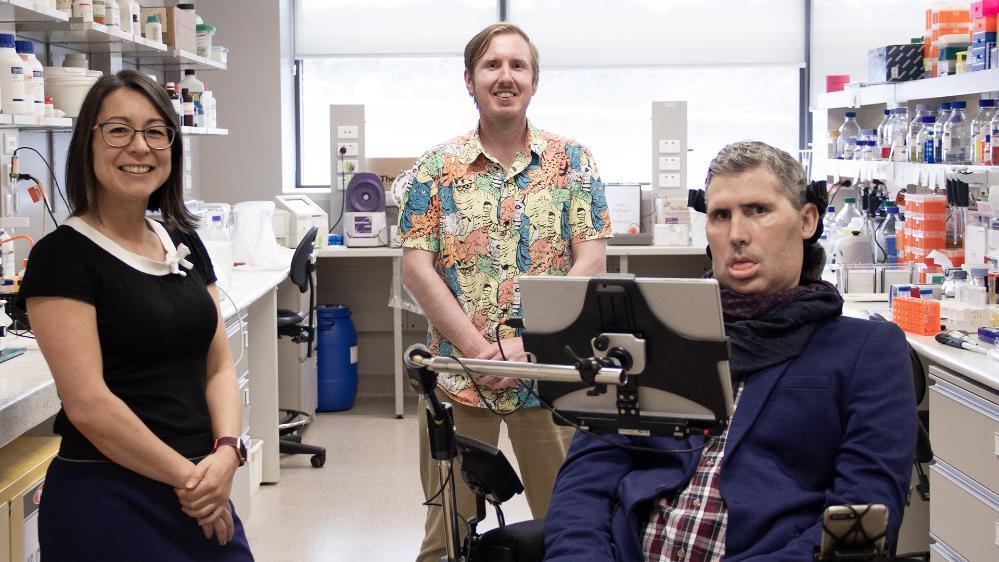UOW researchers awarded $1.5 million funding from FightMND

Researchers from the University of Wollongong and Illawarra Health and Medical Research Institute have received a share of $1.5 million from FightMND to further investigate the causes and treatments for motor neurone disease (MND).
MND is a fatal neurodegenerative disease that causes motor neurons, the pathways between the brain and muscles, to degenerate and die. The disease develops when proteins in the body become misshapen, clump together, and block the pathways. MND is rapidly progressive and leaves patients with the inability to walk, talk and eventually breathe.
Professor Justin Yerbury has received a $1 million Drug Development Grant to further his research into the condition, which focuses on a potential new therapeutic strategy.
Professor Yerbury said the grant will fund a post-doctoral researcher and a research assistant, to test a combination therapy that they hope will be effective in familial and sporadic MND.
“We believe that a three-pronged approach targeting distinct and complementary aspects of the underlying molecular causes of MND will be a more effective approach,” Professor Yerbury said.
Professor Yerbury and Dr Luke McAlary were also awarded a $250,000 Impact Grant over two years to investigate the deposits that cause MND.
Professor Yerbury and Dr McAlary will use the funding to utilise a new form of technology that takes a closer look at single protein molecules.
“We plan to use these technologies to look at the toxic proteins that build up in MND patients. We want to define how the shape of the proteins may give rise to MND and characterise differences between patients,” Professor Yerbury said.
“By knowing the shape that these proteins take, we can identify specific parts of the proteins to target with therapies.”
“We not only want to examine the potential causes, but also the potential treatments for MND. In the next phase of the investigation, we hope to see improvements in our research output and also in our capability to examine drugs for translation into patients,” Dr McAlary said.
Associate Professor Lezanne Ooi was awarded $250,000 over two years to fund stem cell research, investigating whether electrons could reverse the effects of cells affected by amyotrophic lateral sclerosis (ALS), a specific type of MND.
According to MND Australia data from 2015, there is an estimated 2000 Australians living with MND.
With 400 new sufferers being diagnosed each year, the numbers of existing patients remains low due to the rapid mortality induced by MND. There is currently no known cure or effective treatment for the condition.
All grant funding was provided by FightMND, a not-for-profit group that funds and supports research into the disease.
Professor Yerbury expressed his appreciation for the funding body.
“FightMND has done an amazing job raising awareness and funding during a period of decline in government funding,” he said.
“It shows that Australians are passionate about finding a cure for this devastating disease”








